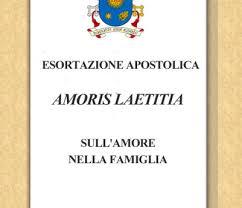
Another interesting piece of (non-insider) commentary on Amoris Laetitia to which I want to point you today: William Saletan at Slate. Saletan argues that the double standard between how the Catholic magisterium treats heterosexual couples incapable of procreation and how it treats homosexual couples — using the same moral norm in both cases — is growing insupportable, and that Amoris Laetitia may open the door to a change down the road in the official Catholic approach to same-sex marriage, as more and more people recognize just how insupportable (and invidious) this double standard is.
Saletan writes,
If you're gay, the Vatican has bad news. "Amoris Laetitia," an "apostolic exhortation" published on Friday, says no same-sex union can be a marriage. That’s because, as the document explains, "No union that is temporary or closed to the transmission of life can ensure the future of society." But if you’re straight and infertile, the rule about transmitting life doesn't apply. Your marriage is just as valid as anyone else's, according to the document, since "procreation and adoption are not the only ways of experiencing the fruitfulness of love."
This double standard, between homosexuality and other forms of infertility, is the cracked pillar at the foundation of the church’s policy against same-sex unions. It's how Catholic teaching on homosexuality will eventually collapse. "Amoris Laetitia" illustrates why.
You see Saletan's point, don't you? The Catholic church does not oppose the marriage of opposite-sex couples incapable of procreating, but recognizes that the love such couples share can be "fruitful" or generative in ways that go beyond biological procreation. Yet it informs same-sex couples that their marriages are immoral because they are incapable of biological procreation — even when abundant evidence exists to show that same-sex marriages can be and often are every bit as fruitful and generative as opposite-sex ones.
As Saletan notes, those attacking same-sex marriage now want to meet these recognitions with the ludicrous argument that, well, in the case of a heterosexual couple, you still have a penis and vagina involved, and this upholds the symbolism of marriage as a biologically procreative union. To its discredit, the Catholic magisterium also now often snatches at this silly argument to bolster its decision to permit infertile heterosexual couples to marry while it excludes and condemns married homosexual couples.
Society as a whole, in many places, has begun to recognize how fundamentally unfair it is for religious institutions to apply the same moral norm in very different ways, as those institutions deal with two different sets of human beings. Hence Saletan's suggestion that Amoris Laetitia will only widen cracks that already exist in the official Catholic discourse about same-sex marriage . . . .

